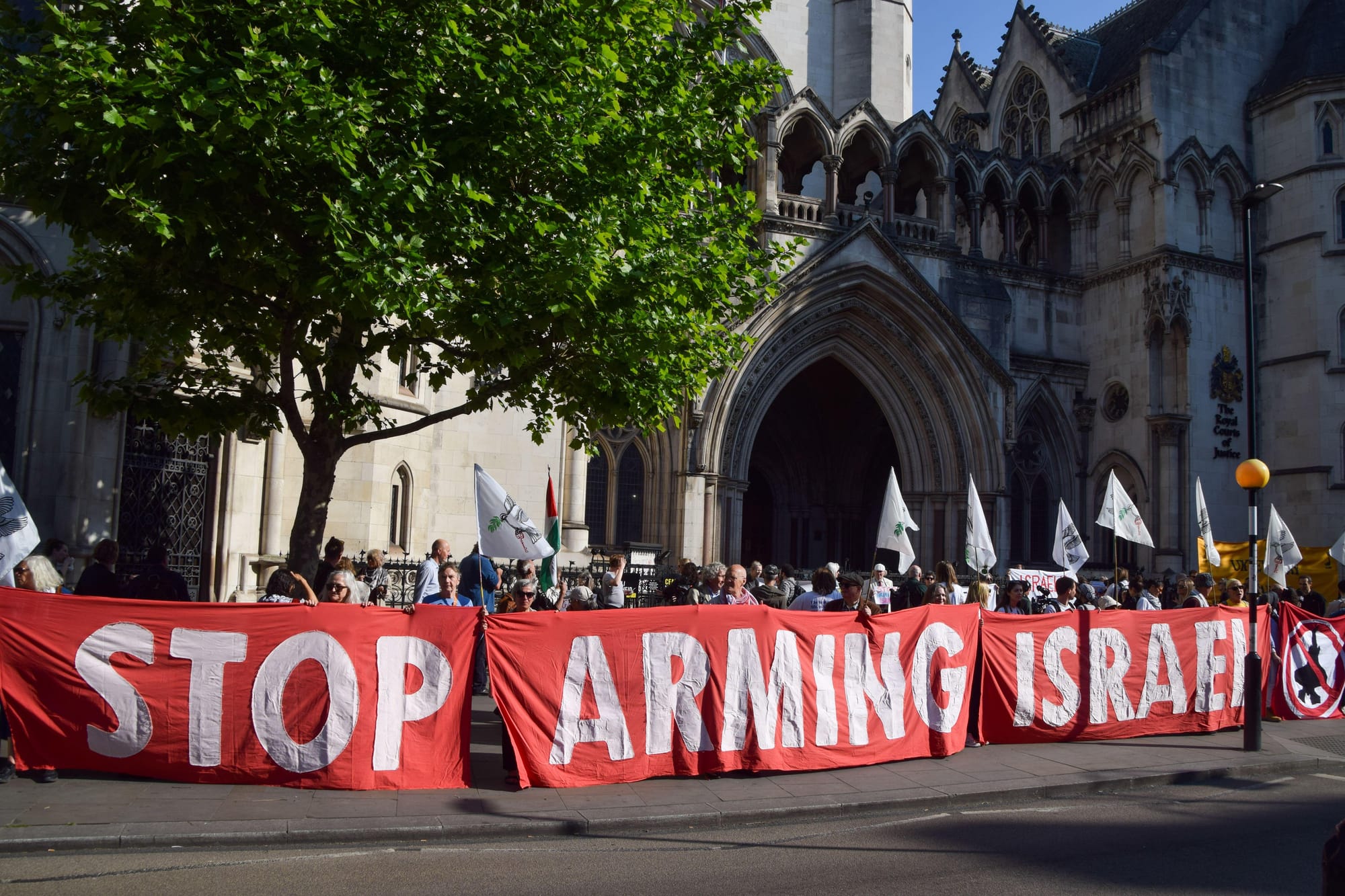Will the UK government have to stop arms sales to Israel?
Amy Hall in London

A judicial review over the UK government’s arms sales to Israel drew to a close today in London’s Royal Courts of Justice. The case, brought by Palestinian organization Al-Haq and the Global Legal Action Network (GLAN), casts scrutiny over UK's role in the production of F-35 fighter jets.
Described by manufacturer Lockheed Martin as ‘the most lethal’ fighter jet in the world, F-35's and their UK-made components have been directly tied to civilian casualties in Gaza.
When the government suspended a number of arms exports licenses to Israel in September, the indirect supply of F-35 fighter jet parts was excluded from the suspension. This ‘F-35 carve out’ was created despite the government’s own assessment that Israel is not committed to complying with international humanitarian law.
To justify this move, it was argued that disrupting the supply chain could damage national and international peace and security, leaving the UK and other F-35 producers vulnerable as well as harming relations with the US.
Alex Blair, communications manager at Garden Court North Chambers, dismissed this justification: ‘As argued by Garden Court North’s Mira Hammad and other Counsel [during the hearing], this defence is both flawed and contradictory. The deployment of F-35 jets by the Israel Defence Forces (IDF) to drop tens of thousands of bomb tonnage on Gaza poses the real risk, as a serious violation of international humanitarian law.’
The government is accused of failing to properly consider evidence of Israel’s misconduct. In their arguments to the court, lawyers from Al Haq and Global Legal Action Network (GLAN) presented a number of examples of war crimes committed in Gaza, including torture and the intentional targeting of vulnerable populations and essential infrastructure
The government refutes the accusation, arguing that there is ‘no evidence’ of deliberate targeting and denying the existence of a genocide taking place. Regarding their decision to continue the supply of F-35s, they argue that the risk of harm against Palestinians does not yet outweigh their concerns about security.
The week of the hearing alone has seen more suffering inflicted upon the people of Gaza – yesterday alone at least 143 people were killed by Israel. ‘We are watching a genocide. We are seeing Palestinian children blown apart by bombs dropped by F-35s’ said Campaign Against Arms Trade's Emily Apple in response to the government's claims, adding: ‘These are war crimes.’
The Royal Court case comes alongside new figures which show that, despite the September suspension, there was a significant increase in UK arms exports to Israel in the last three months of 2024.
If the challenge to the government is successful, the UK government will be faced with a choice: to either halt the export of F-35 parts or continue to indirectly supply arms to Israel through a new decision-making process, and potentially be made to acknowledge that this move is in breach of international law.
The court’s decision on the case is yet to be delivered.
— Amy Hall
👓 Explore more of our special series on 'How to stop the arms trade'
📍 Use this interactive map from Campaign Against Arms Trade to see which UK companies are arming Israel
💰 Donate today to support Global Legal Action Network in this case
🖊️ Sign the petition from Global Justice Now calling for the UK to stop arming Israel
Read the latest issue of New Internationalist
Like what you've read? Support us with a tip
Looking for more? Listen to our podcast The World Unspun
Shop ethical goods at our very own Ethical Shop

